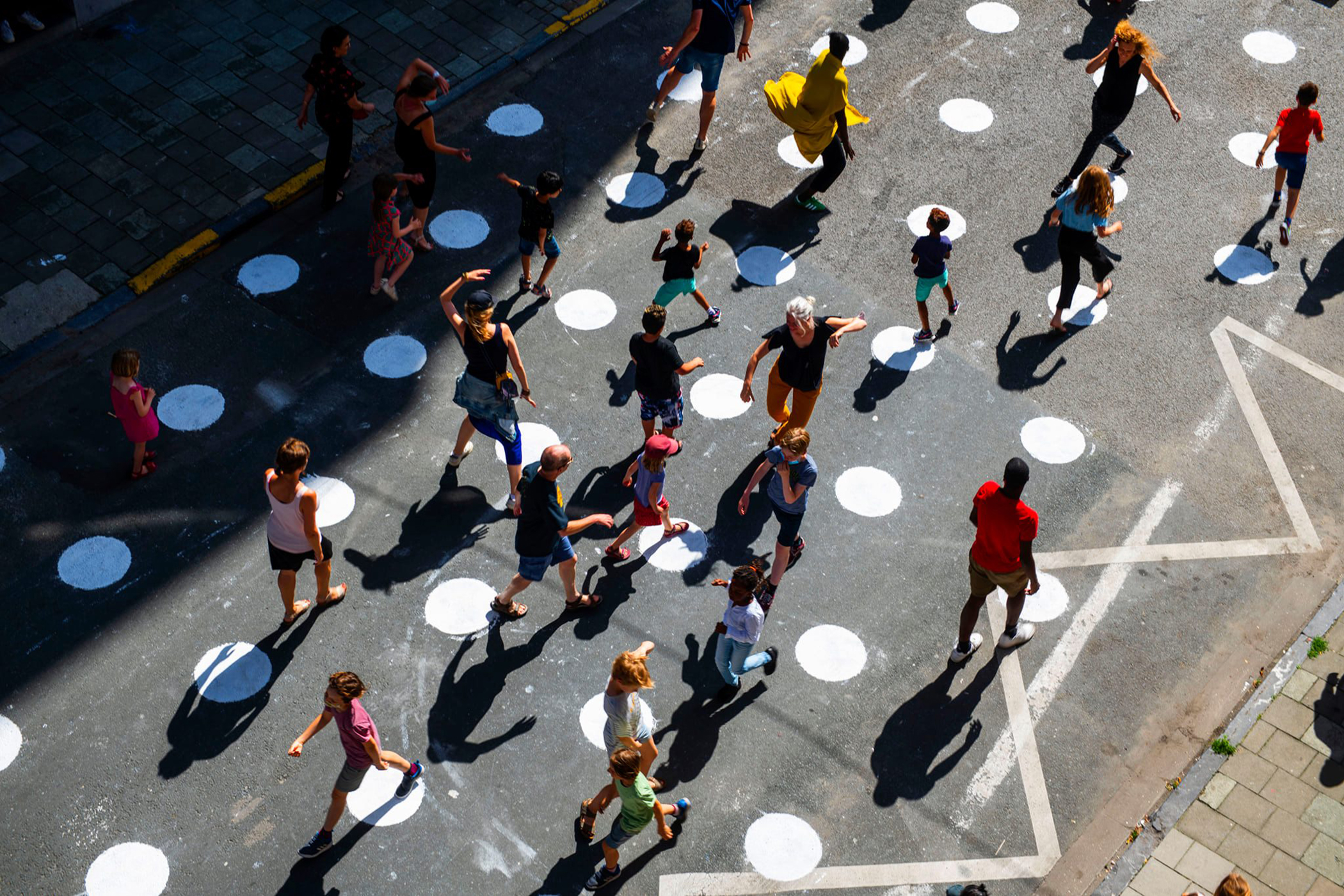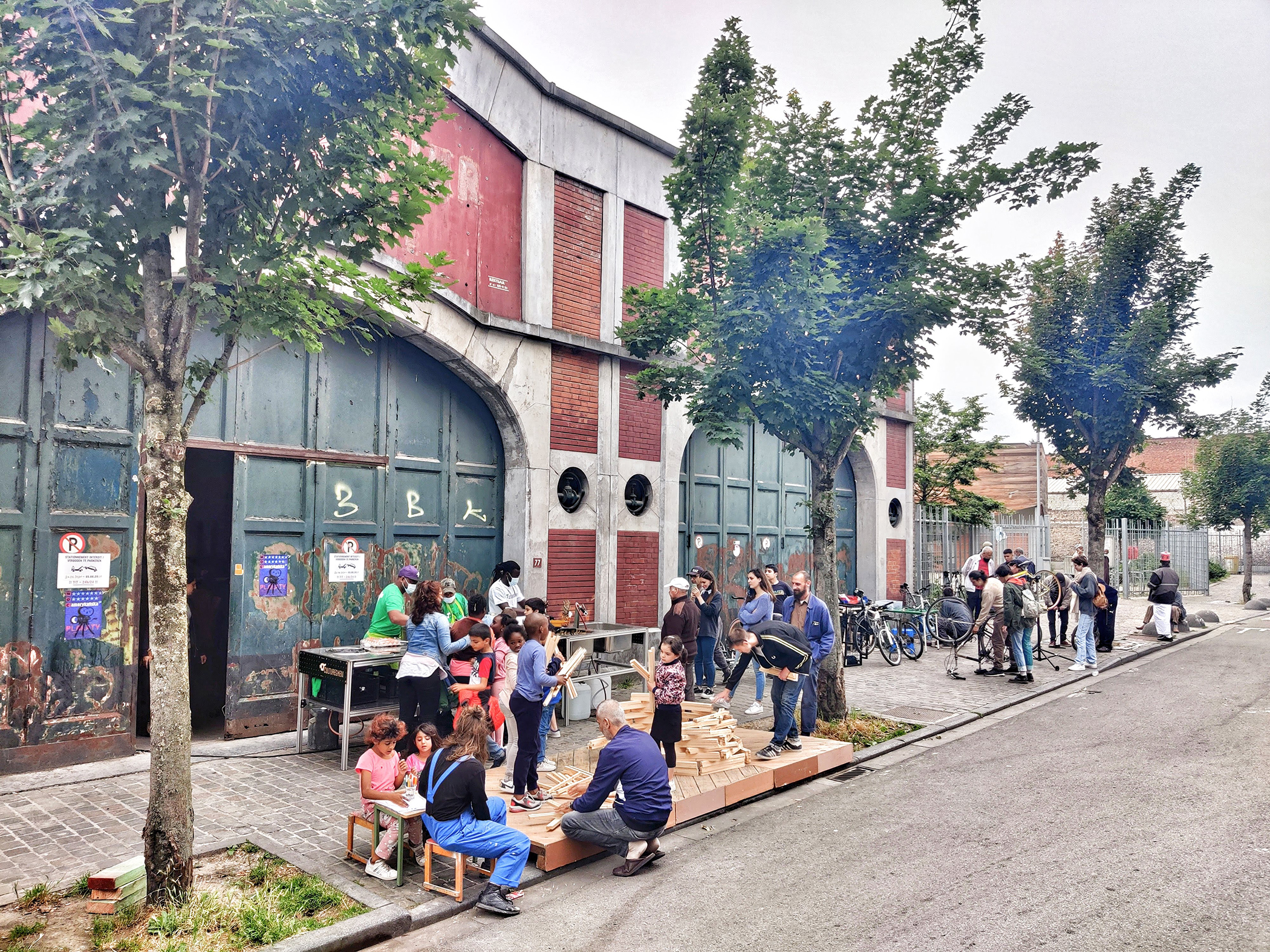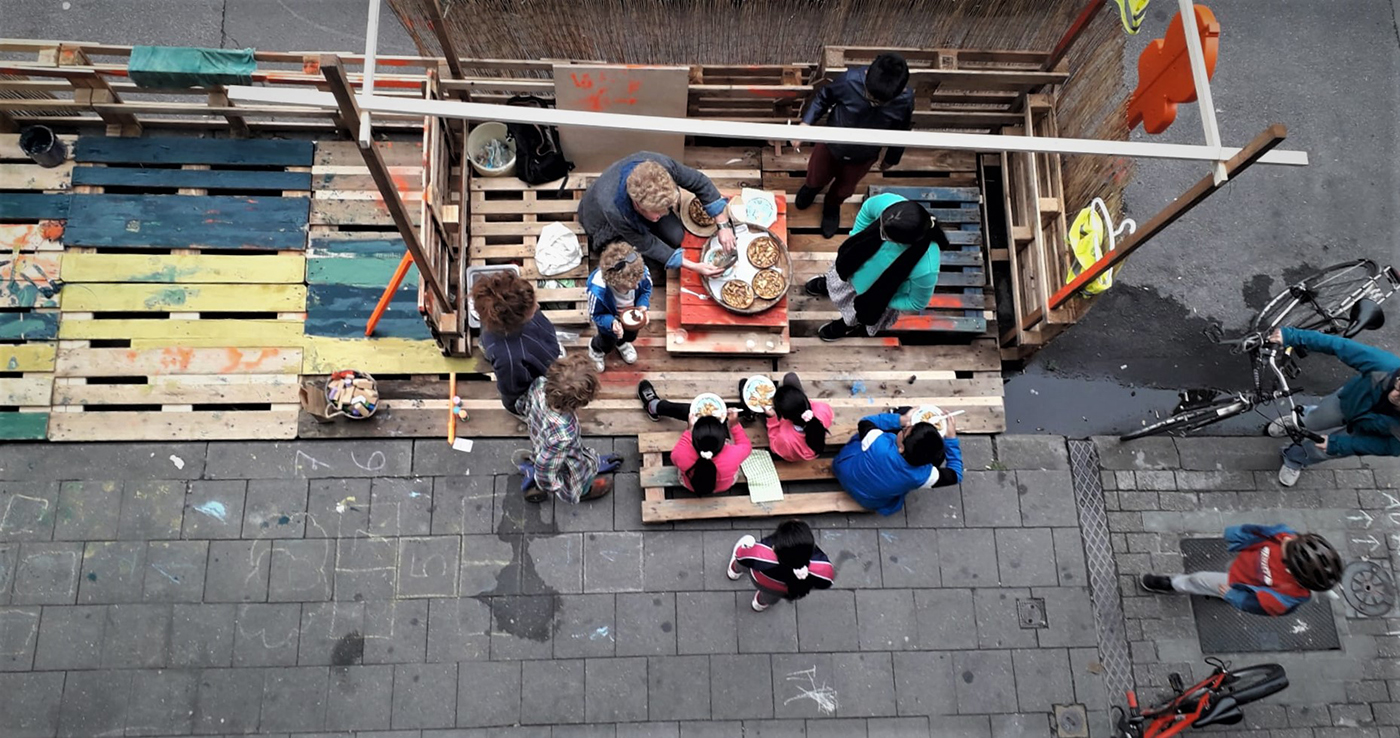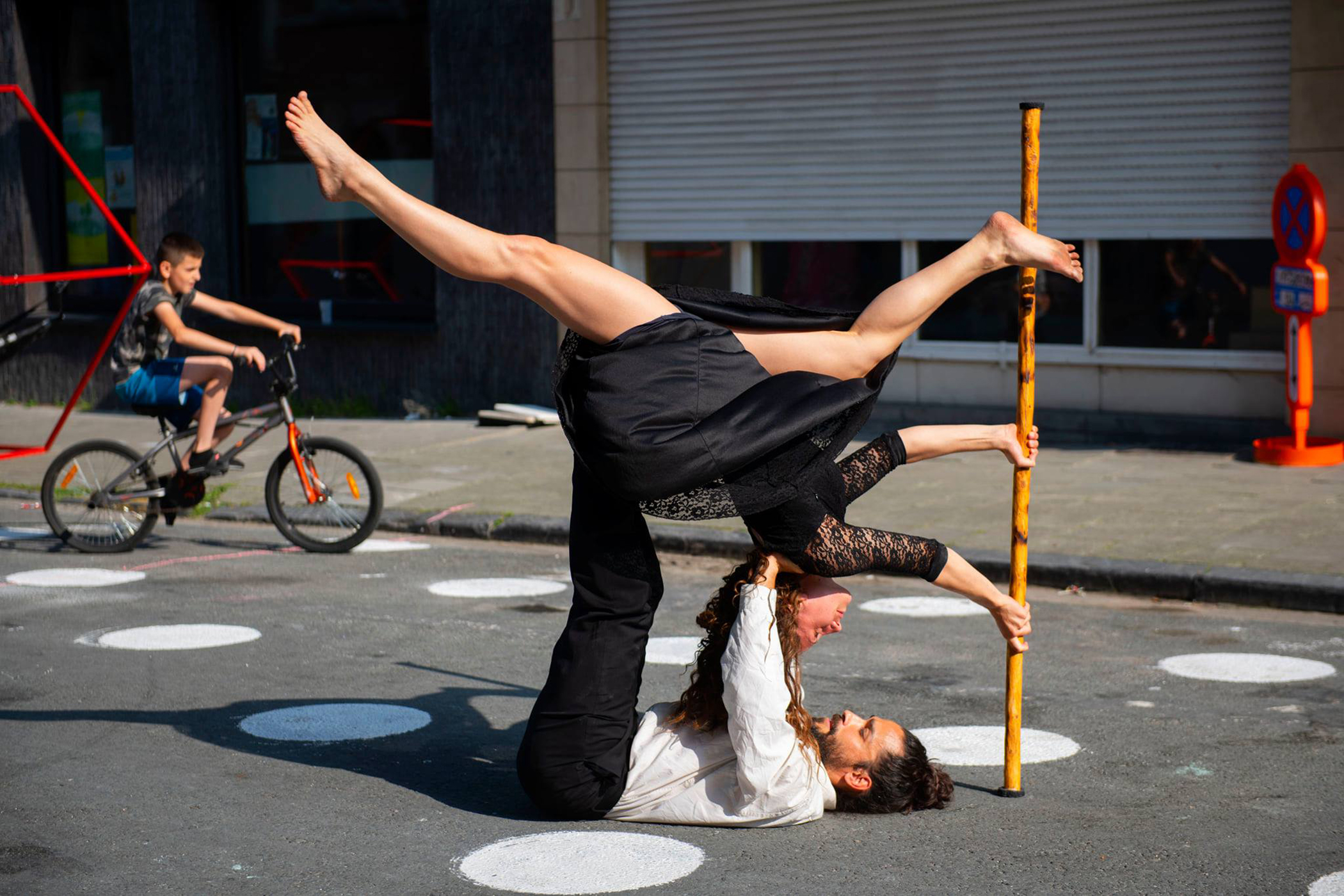 Project "Filter Café Filtré" - © ASBL Filter Café Filtré Atelier
Project "Filter Café Filtré" - © ASBL Filter Café Filtré Atelier Project Gilbardises - © ASBL Gilbard
Project Gilbardises - © ASBL Gilbard Project "Mobil’été Gray" - © E. Ville
Project "Mobil’été Gray" - © E. Ville Project "Filter Café Filtré" - © ASBL Filter Café Filtré Atelier
Project "Filter Café Filtré" - © ASBL Filter Café Filtré Atelier
City
Brussels Capital Region
Main actors
Local Government
Project area
Inner City
Duration
Ongoing since 2020
Holiday at Home
Staycation BXL and “Bruxelles en vacances” projects invite organisations, associations and community groups to develop and host activities in public spaces during the summer. The projects are intended to be both inclusive and participatory with the idea that the public space should be safe and healthy for everyone.
The health crisis of Covid-19 highlighted the need to better share public space in the city and reserve a significant part of it for active modes, meeting space of leisure with the physical distances. In the summer of 2020, due to the limitation of travelling, Brussels Region launched a campaign to encourage associations to provide activities during the holidays and to use public space as a place to walk, play, meet and exchange about urban issues .
In 2020 a first call for projects was launched to associations and organisations.
The applications were analysed according to the priorities of the regional mobility plan “Good Move”:
- more space for living (including play) and meeting
- more greenery in the city
- more attention for active modes of transport
Initiatives addressed a wide range of youth, cultural, sports and leisure activities.
The lead agencies for the project are the Flemish Community Commission (FCC) and Brussels Mobility (Brussels Capital region). The FCC is responsible for cultural, educational and personal (welfare and health) matters but only for Flemish institutions.
In 2020, 179 projects were subsided with a budget of 1M € from the FCC and 46 projects with 500.000 € for Brussels Mobility (Brussels Capital Region).
In 2021, 120 projects were subsidised by the FCC with a budget of nearly 500.000 € and 49 projects by Brussel Mobility (Brussels Capital Region) with nearly 600.000 €.
In 2020, a small survey was conducted to evaluate the first edition of the programme.
Some reflections from this survey are:
- Very positive feedback from residents, participants, organizers, etc.
- Creation of links between neighbours
- More spontaneous use of public space
- Great opportunity to start discussions with residents on the improvement of public space and the neighbourhood
- Identification of residents' needs and wishes in terms of development and the start of a conversation with the authorities
- Opportunity to experiment with projects and improvements
- Activities open to all (sometimes with a limited number to contain the spread of COVID-19)
- Brussels capital region has developed a mobility vision plan, Good Move. The activities in the public spaces were also an opportunity to test some principles of the Good Move plan (Good neighbourhood) such as car free districts, speed limited zones, new and secure public spaces
Bruxelles en vacances is restarting in 2022. Please find the 2022 call here.
- Uncertain context and complex sanitary conditions linked to COVID-19
- Cumbersome administrative procedures (municipalities, police authorization)
- Lack of coordination between the regional subsidy and communal authorizations
- Heavy workload for volunteers, often lacking information and not experienced in project development
- Very tight deadlines
- Long delivery time for materials due to COVID-19
- Weather conditions
- Behaviour of motorists (inappropriate speed, unpleasant reactions)
- Launch the call for projects early in the year in order to be better organised
- Check back with sponsors before disbursing subsidies
- Organize an evaluation process between project leaders so that they can exchange contacts, experiences and knowledge, and combine their efforts
- Create a space for communication between public and field actors, even for this type of one-off initiative
- Propose a list of artists or itinerant activities that can animate the public space
External links / documents
On Map
The Map will be displayed after accepting cookie policy